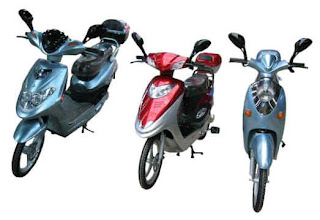Reva Hits Major Roadblock In The UK
The Reva's flagship electric car has run into big problems in its most promising market, the UK. Marketed as the G-Wiz by GoinGreen, it was attaining celebrity status in the green-conscious circles. With very low running costs, exemptions from congestion tax and parking fees, it was all set to make big inroads into London. Reva Electric Car Company (RECC) hoped to use London as a launchpad for equally eco-conscious cities in the rest of Europe. Now it looks like disaster might have struck.
Safety Concerns
Apparently the G-Wiz was initially categorized as a quadricycle. According to the UK's Department of Transport, a quadricycle is classified as a, “four-wheeled vehicle whose unladen mass is not more than 400kg (excluding batteries if electric-powered) and whose maximum rated power does not exceed 15kW”. This worked well for the G-Wiz initially, but of late the car was being marketed more as a car (naturally since the brand value of a car is much higher than that of a quadricycle). this prompted the government to subject the car to crash tests for a "normal" car.
The results were disastrous. This has prompted the government to immediately move to ban the car. But GoinGreen disagrees.
Argument versus counter-argument
"According to the Department for Transport (DfT), in the test replicating the official crash for ‘normal’ vehicles, the driver of the G-Wiz was trapped in the wreckage and suffered “significant head and lower extremities injuries ” while the passenger suffered “lesser, but severe lower extremity injuries”.
"Defending the G-Wiz, GoinGreen boss Keith Johnston said the real-world safety record of the car spoke for itself: “Our customers have driven 20 million miles and have 4000 years of ownership with no reported serious injuries.” >> Autocar
The move to ban the G-Wiz has come in for at least some opposition in the British media.
Our Opinion
Essentially the G-Wiz was RECC's first model and I am not sure why they are still persisting with it. Here are some of the major complaints against the car, which RECC should look to overcome.
- "Comical" Looks: But RECC does have relatively sleek looking models including this one designed by Dilip Chabria. What are they waiting for?
- Security: No airbags. Is it that difficult and expensive to add airbags? Their argument that air bags only help in high speed crashes will not hold much water.
- Sturdiness: When sharing roadspace with SUVs and trucks, the car does feel relatively... flimsy? This might need some re-engineering to overcome including a further lowering of the center of gravity. No short-term solution.
- Speed: RECC has long had models in its stable which can do better than the G-Wiz's 42 mph. Then again, faster cars need better safety equipment, even going by the (lame?) argument against them for slower cars.
- Range: This cannot be helped with the current generation of car batteries. But RECC can promise its customers that when better batteries hit the market, they will be made available as standard upgrades.
Reva - set for big time
Green Fuel Station and a Chinese Reva
Eco-friendly transport system for Delhi
Reva - "World's highest selling electric car"
Tatas bringing the Air Car to India





